
Therapist Recommended Reading List
In the world of self-improvement and personal growth, few tools are as relevant as a good book. When it comes to nurturing our mental health, the right words on a page can be a source of solace, inspiration, and profound transformation. Whether you’re seeking guidance, looking to gain insights into your own mind, or simply hoping to find comfort in relatable stories, the realm of mental health literature is rich and diverse.
In this blog, I’m starting with the basics. For everything from relationships to grief and loss, these books offer invaluable perspectives, strategies, and narratives that can guide you on your path to well-being and empower you to navigate the complexities of life.
The 20 Best Therapy Books For Beginners
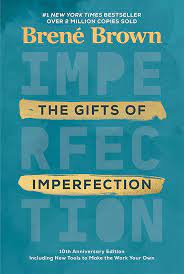
By Brene Brown
BEST FOR: Everyone.
WHY: While all of Brene’s books could be on this list, this is the one you should start with. There are very few things in life as relatable as feeling imperfect, and she is the master of helping us understand that we don’t need to hide in the shame of this emotion. In her (now famous) relatable style, this book walks us through vulnerability, and what to do with it. Easily equivalent to a year’s worth of therapy.
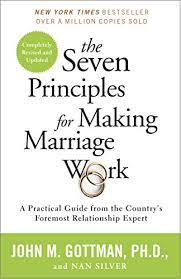
By John Gottman
BEST FOR: Marriage, Relationships
WHY: The Gottmans are the ‘guru’s’ of the couples counseling world. When it comes to the basics of what makes relationships work or fail, they have the evidence-based facts.
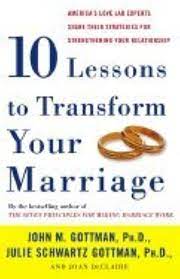
By John Gottman, Julie Schwartz Gottman
BEST FOR: Marriage, Relationships
WHY: The Gottmans are the ‘guru’s’ of the couples counseling world. When it comes to the basics of what makes relationships work or fail, they have the evidence-based facts.

By Mark Manson
BEST FOR: e.v.e.r.y.o.n.e
WHY: My love for Mark runs deep. I read this blog before it was turned in to a book, and immediately thought, “Everyone needs to read this, and this is the root of why we all suffer so much.” To be fair, he is giving similar advice that has been passed down for ages, but he is straghtforward and modern, and uses the word “fuck” a lot, which currently appeals to us more than trying to read Nietzsche.
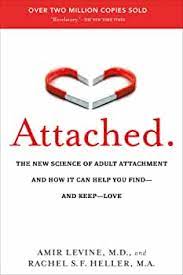
By Amir Levine
BEST FOR: Anyone who has ever attempted to have any kind of relationship
WHY: If you’ve ever wondered whether or not you sabotage relationships, this is the book for you to start with. Even if you aren’t currently in a romantic relationship, we should all understand how we were shaped by our childhoods and upbringing. More specifically, Attached is the book on learning how we relate to others in relationships, and what to do about it if your style is anything other than secure.

By Sue Johnson
BEST FOR: Marriage, Relationships
WHY: This book, despite it’s unfortunate title, is one of the best relationship books out there. Sue Johnson actually identifies the most deep-rooted issues at the core of every fight that any couple has ever had. *Hint – read Amir Levine’s book first 🙂 After this book, you will fight better, differently, or not at all.
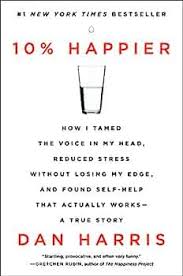
By Dan Harris
BEST FOR: Meditation skeptics, Anyone who wants to be a little bit happier
WHY: Maybe there is a little bit of a skeptic in all of us. Can I really feel better? Can talking to someone actually help? Am I just destined to be the way I am forever? One of the reasons we feel disappointed with things like therapy, meditation, and cognitive behavioral techniques is because it’s not “enough, fast enough.” This book not only helps manage those expectations, but also lays out a how-to guide.

By Miguel Ruiz
BEST FOR: Every human.
WHY: We spend a lot of time looking outward for the source of our suffering. The finger-pointing and blame is at an all-time high. This classic by Miguel Ruiz is a reminder to go back inward and be accountable for four life-changing mindsets that we actually have control of.
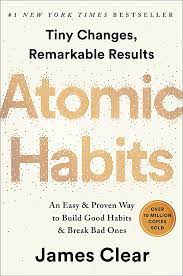
By James Clear
BEST FOR: Anyone who has ever wanted to change a habit
WHY: If you’ve ever said (or thought) “I know what I need to do to reach xxx goal, but why don’t I follow through and actually do it?” This is the book for you. I’ve read countless others on the topic, and James Clear gets it right.
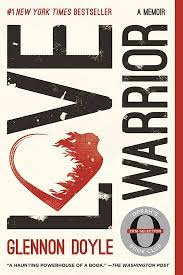
By Glennon Doyle
BEST FOR: Addicts, new moms, those new to therapy, anyone who wants to learn more about emotions, anyone who has ever felt different or that they didn’t belong, anyone trying to “fake it” just to get by.
WHY: Glennon’s personal memoir is for anyone who has ever used any kind of coping mechanism to help manage painful emotions. From the time she was very young, she found ways to numb or to try to fit in. When her world is broken open and she is forced to stop all her addictions and actually feel for the first time, she approaches the experience with the relatable shock and humor that only Glennon can. If you love this, you’ll love her follow up: Untamed.
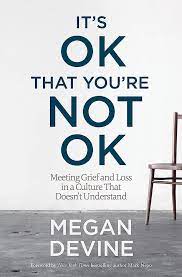
By Megan Devine
BEST FOR: Grief and loss. The sufferers, and those trying to be there for them.
WHY: This topic has been written about countless times. There are (probably) hundreds of books on grief out there that are good. This one is great. There are no magic words, there is no fancy therapeutic intervention that can take your pain away. This is the truth. Honest, raw, and realistic for those who haven’t been able to find comfort in the never-ending wave of “I’m sorry” sentiments.
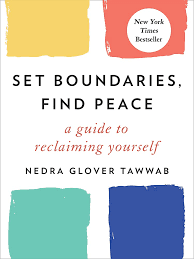
By Nedra Tawwab
BEST FOR: Those who have difficulty setting boundaries, or just want to learn more about it.
WHY: “Setting boundaries” has become a popular therapy buzz-phrase. Like most things, there is a lot of mis-information out there. Nedra gives us the details of what it is, what it isn’t, and how to do it right.
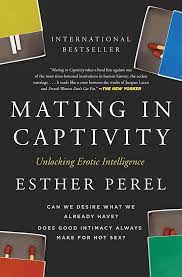
By Esther Perel
BEST FOR: Marriage, Relationships
WHY: If you know me, you know that I hang on every word this woman says. She is brilliant and single-handedly redefining how we conceptualize infidelity and desire in long-term relationships.
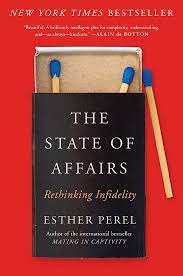
By Esther Perel
BEST FOR: Marriage, Relationships, anyone who has been involved in infidelity
WHY: If you know me, you know that I hang on every word this woman says. She is brilliant and single-handedly redefining how we conceptualize infidelity and desire in long-term relationships.

By Lori Gottlieb
BEST FOR: Anyone who is in therapy or has ever thought about going to therapy. And, of course, therapists.
WHY: If you’ve ever wondered if your therapist goes to therapy, or has any issues of her own, this is your very descriptive, honest, raw, and humorous answer. Her interactions with clients are insightful, witty, and helpful. Her interactions with her therapist are vulnerable and powerful. It will leave you Google searching for Wendell…

By Stephanie Foo
BEST FOR: Trauma, PTSD
WHY: This book needs no “why.” This is, hands down, the best book on trauma I have ever read.
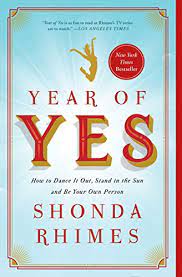
By Shonda Rhimes
BEST FOR: Working moms, overachievers, introverts, goal-setters, those working on self-love, or anyone who has ever wanted to challenge themselves
WHY: Shonda’s personal journey is an inspiration. This book should be required reading for any working mom trying to “have it all,” and for anyone who wants to challenge themselves to work on something about themselves they didn’t think they could change.
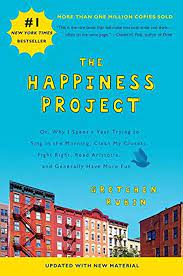
By Gretchen Rubin
BEST FOR: Anyone needed a little life reset. Or a general life overhaul.
WHY: Gretchen was someone who “had all the pieces in place.” Her life looked great on paper. But she still wasn’t happy. So she created a plan to go through 12 different aspects of her life (one per month) and figure out how she could make each one better.
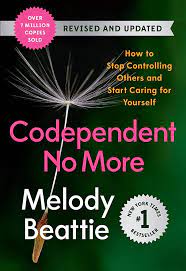
By Melody Beattie
BEST FOR: Anyone in a relationship with an addict, raised by an addict, or fears they may just have some co-dependent tendencies.
WHY: CDNM is the “bible” for anyone who grew up with an addict parent. She details ways in which you were affected and molded that you’ve just taken for granted as “how you are.” ACOA’s – I’m talking to you. This book can save you a year of therapy, minimum.

By David Michie
BEST FOR: Cat people who want a dose of ancient wisdom
WHY: While many of us on the journey to find meaning and purpose in life wish we could make the trek to Tibet and have a sit-down with His Holiness, we have to settle for his wisdom second-hand. Michie’s book delivers just that, adding a skosh of humor by delivering said wisdom through the eyes of a cat.
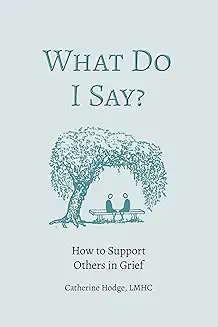
What Do I Say? How To Support Others In Grief
By Catherine Hodge, LMHC
BEST FOR: Everyone.
WHY: At some point we will all know someone who is grieving. We can feel helpless and at a loss for words. In this book Catherine gives us the tools for what to say, while also highlighting what not to say.
